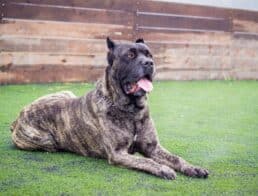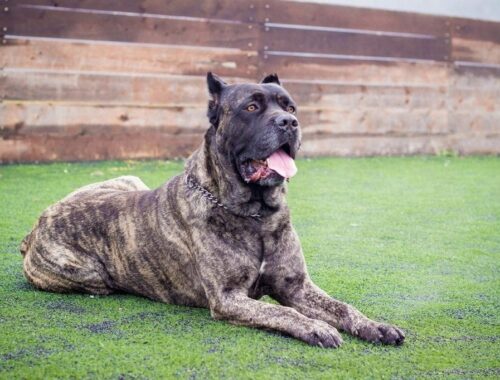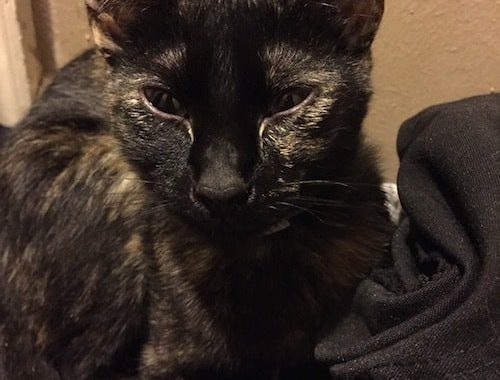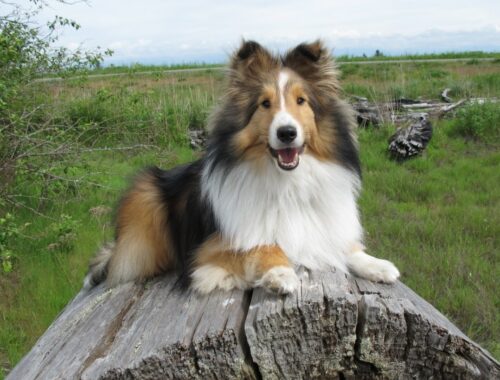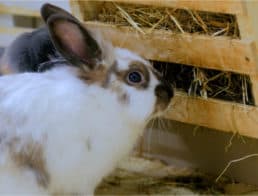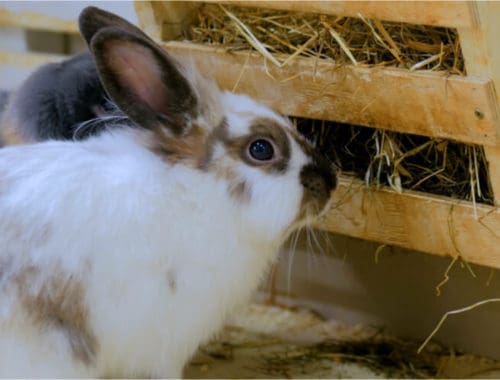Question: Why does my dog keep coughing after being treated for kennel cough?
My dog was treated for kennel cough still has this same cough. Seems to happen as soon as we go outside it is winter here so I couldn’t see allergies being the issue.
– Hunter
Answer:
Dear Hunter,
You’re wise to be concerned about your dog’s ongoing cough. There are many reasons a dog might develop a chronic cough. Let’s take a look at a few of them…
Asthma/Cold Airway Disease/Allergy
Inhalant allergies are common in dogs. Pollen is the biggest culprit, but dogs can be allergic to smoke, dust, and household chemicals, too.
Asthma attacks happen when the muscles in the small airways of the lungs spasm, making it difficult for air to move properly. It’s often associated with allergies, but not always. Irritants and cold air can cause airway muscle spasms, too.
Aspiration of Stomach Content
Like humans, dogs can suffer from acid reflux. If a bit of stomach content makes it all the way up to a dog’s throat, it’s easy for them to inhale it. As you can imagine, stomach acid and bits of food are very irritating to the respiratory system! Dogs with a history of a “sensitive stomach,” gagging and vomiting are more likely to have this problem.
Neurologic Problems in the Larynx
Older dogs sometimes experience degenerative changes to the nerves that operate the upper airway. The larynx is an anatomic apparatus in the throat that helps keep air and food/water from going down the wrong pathway. If the larynx isn’t working well, dogs may inhale bits of food or water causing irritation to the trachea and lungs.
Parasites
Several parasites cause coughing in dogs. The first parasites that come to mind are heartworms. Transmitted through mosquito bites, heartworms are a serious problem in many parts of the world.
Some intestinal parasites can cause coughing, too. Dog hookworm larvae travel through the blood to the lungs as part of their lifecycle. When the infected dog coughs, the larvae are swallowed and continue to mature into adults in the GI tract.
Your veterinarian can diagnose parasite infections with blood and/or stool tests.
Ongoing Infection
If your dog was initially infected with a virus or bacteria (kennel cough), it’s possible the treatment didn’t fully clear the infection. Veterinarians can collect samples of fluid from the lower airways to make an accurate diagnosis.
Next Steps and Home Care for Dogs with a Chronic Cough
Your best bet is to see a veterinarian to get an accurate diagnosis. Your vet may start by taking x-rays of your dog’s chest, followed by checking blood tests and collecting an airway sample. Treating with the right medications for the disease will save you time and money over trying to guess what’s causing a chronic cough. Plus, your dog will feel better sooner!
Until you can get in to see your veterinarian, here are some home care steps for soothing a chronic cough:
-
Humidifier
Humidifiers sold for human use will work for your dog, too. Set it up in the room where your dog spends the most time. Use the humidifier at night, when dry air can cause respiratory irritation.
-
Homemade Cough Remedy
Make a mixture of 2 tablespoons of warm water and a teaspoon of honey in a small bottle with a cap. Give 1 teaspoon of the mixture every 4 to 6 hours to soothe irritated respiratory tissue. Shake well before using and store in the refrigerator no longer than 7 days.
Hope your pup feels better soon!
Sincerely,
TB Thompson DVM
Disclaimer: Your use of the Ask The Vet feature is subject to the Ask The Vet Terms of Use.
Featured Image Credit: Iryna Imago, Shutterstock











